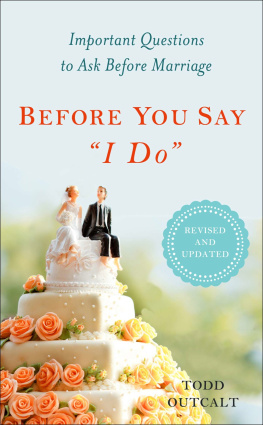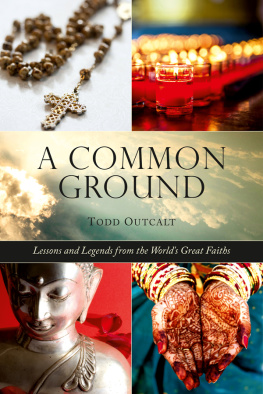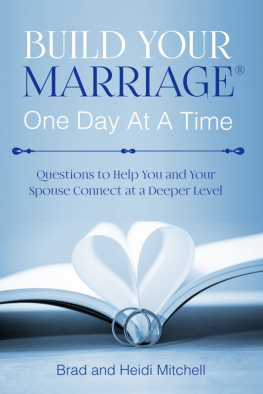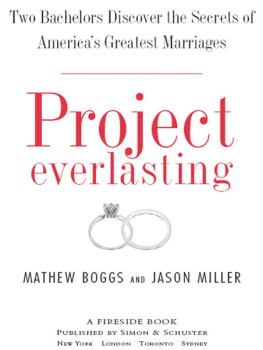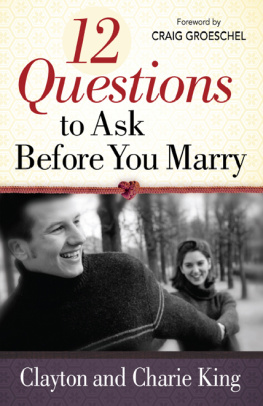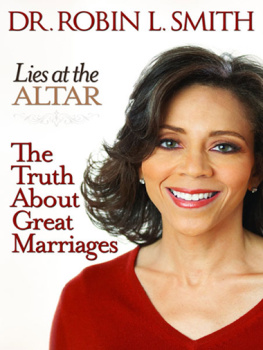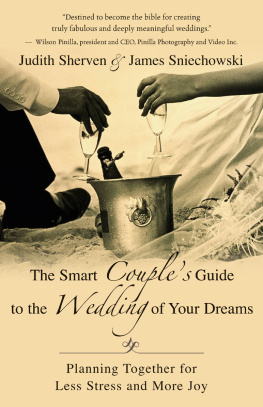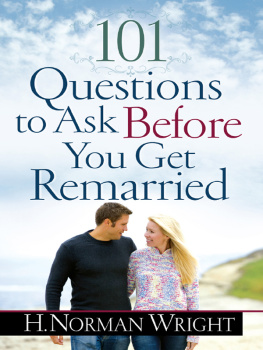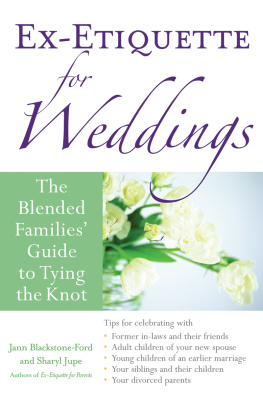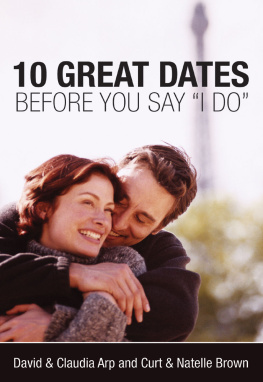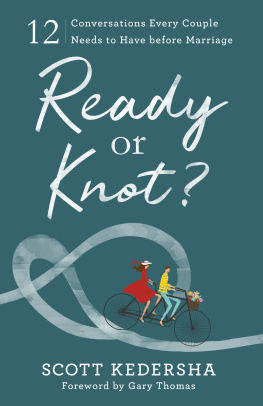ACKNOWLEDGMENTS
The creation of any book owes its existence to a great many people; I acknowledge that this is certainly the case with this third edition of Before You Say I Do.
From the outsetand after thirty years of pastoral ministryI wish to thank the many couples who have allowed me to be a part of their lives both before and after their weddings. Although I have changed the names and situations in this book at many turns, I am grateful to have so many true-life experiences to draw upon. I am also grateful to the many couples who have come to me for marital counselingand who have taught me much about the joys and stresses of marriage.
Since the first publication of this book in 1998, I have had the privilege of speaking to many groups about marriage, and I wish to thank those who have provided me a forum for addressing one of lifes greatest challengesand joys. I also thank the many magazine editorsof bridal magazines in particularwho have published my work through the years. There have been many opportunities to learn from other couples, and I am grateful to all who have opened their hearts and their homes to me.
I am also grateful to the hundreds of couples who have written to me over the years with their questions about marriage. I have not always been able to provide answersmarriage is, after all, a relationship of imperfections. But I have appreciated the opportunity to have a conversation with so many other couples, and to learn from their insights and struggles and successes. Much is learned through sharing, and this book is no different. I thank all who have shared in it.
Thank you, Cynthia, for being my advocate for this third edition and for your tireless and consistent efforts through the years. I look forward to other projects together and value your insights. Thanks so much.
I am grateful this time around to Jeanette Shaw, whose editing skills guided this new edition to final form, to the staff at Perigee for their good work, and I am ever grateful to John Duff, publisher, for his continuing support. Many books dont have the longevity or the commitmentand I am indeed grateful for the opportunity to write this third edition and to make it available to a wider audience.
Finally, I thank my familyChelsey, Michael, and Logan. And I thank my wife, Beckyfor thirty years of marriage, a significant accomplishment for two imperfect people who still love each other. We are still saying I doand the best is yet to come.
I NTRODUCTION
So You Want to Get Married?
A s a pastor, I have had many opportunities to counsel couples before marriage. I have helped them plan weddings big and small, guided them when one or both were having last-minute doubts, and sat beside them later at the reception.
But, in spite of the many weddings Ive seen and officiated at, I never lose sight of the fact that it is much more difficult to have a marriage than a wedding. Anyone can organize a wedding, but not everyone can have a long and happy marriage. A wedding takes planning. Marriage requires hard work. A wedding can be had for the cost of a cake and punch bowl. A good marriage cannot be purchased in any way.
Marriage is about two unique people who decide to form a unique relationship with each other. Even though there are millions of marriages, every one of them is unique in its composition, joy, expectation, stress, partnership, sadness, and love. It has been my observation that every marriage has to stand on the strength, resiliency, and love of the two individuals.
But how, if one is considering marriage, does one determine the true strengths and weaknesses of the loved one? Is there any way to plumb the depths of anothers mind and soul, to find out if, indeed, he or she is the right one to marry?
I think there is.
And it has to do with communication: namely, asking good questions and following up with focused listening. Good marriages thrive when couples communicate with each other through the broad spectrum of experiences and emotions, through all the pain, laughter, and stresses of a relationship. Great relationships happen when individuals learn to speak and listen to each other.
If you are considering marriage in the near future, my hope is that this book will help you to ask the right questions before you walk down the aisle. Asking good questions is the key to exploring a future marriage relationship.
The questions you will find in this book have been used by many couples during their courtship or engagement and are ones I have commonly asked in premarital counseling sessions. They are questions that can be asked in privacy, or, sometimes, in the company of others. They are designed to help you learn more about the person you want to marry.
How to Use This Book
No individual will need to ask all the questions in this book. But there are dozens of good questions on a variety of topics that can provoke some in-depth discussion with the one you love. With a little practice, the questions can be asked within the usual patterns of conversation you share with your partner. He or she may not even know that you are asking questions taken from a book. Or, you might opt to use this book as a mutual discussion tool.

